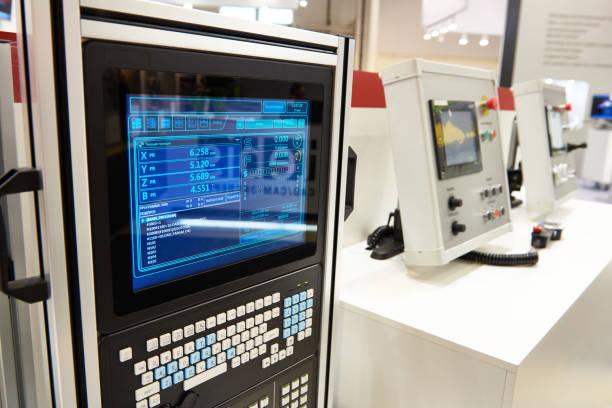
OT is an acronym for Operational Technology. It’s the use of hardware and software to monitor and control physical processes. OT systems can be found across a range of asset-intensive sectors. They perform tasks such as monitoring critical infrastructure and controlling robots. It’s used in industries like oil and gas, aviation, maritime, and many others.
Organizational need for OT security increases the more it leverages IoT-based devices. OT security takes care of sensitive devices like the electrical control switches. A cyber attack on these systems can affect everyone relying on these services. In the worst-case scenario, a loss of life can occur.
OT security has a lot of layers but often starts by analyzing the industrial networks. These systems get isolated, which lowers the volume of network traffic to be analyzed. Due to less traffic, baselines are generated faster. Monitors on the other hand get set to alert in case of suspicious activities.
An OT security vendor uses a blend of baseline analysis and behavioral analytics. The two technologies help to detect if machines are being accessed in a manner that they shouldn’t. Such an act can get detected and an immediate notification sent to the supervisor. Once that’s done, an individual can have their account temporarily locked.
A lot of this automation and monitoring is meant to stop an attack while still in its early stages. Besides monitoring, OT security solutions have tailored access control solutions. You can do this to ICS and SCADA systems.
Some of the best OT security vendors include:
- It offers a suite of security services.
- It focuses on providing cyber security for critical infrastructure.
- It creates visibility into IoT networks and IT devices.
- Honeywell Forge Cyber security. It secures every endpoint in the IoT chain and brings that data together.
- Kaspersky Industrial Cyber security
- Darktrace Industrial Immune system
- Dragos
Choosing The Right OT Security Vendor

Many organizations provide security products and services for OT environments. The right vendor determines the success of cyber security in an organization. To help you make the best choice, here are the aspects to consider and questions you must ask and answer.
1. Does The Vendor Manufacture its Products?
When looking for a security vendor, find out if the company manufactures its products. Reason being that a company can OEM a product, and place its logo on another company’s product. This brings uncertainty about the quality and the inability to find replacement parts.
The uncertainty also crops in when it comes to the time it takes to fix or replace the product. There’s also poor software support and the cyber threats you’ll need to worry about.
When a vendor manufactures their product, they know where it was assembled, its parts, and how it works. They also know how to fix it and have engineers on staff to handle any escalating issues.
2. Does The Solution Support Secure IT and OT Alignment?
Despite the rise in IT and OT convergence, their infrastructure and networks differ. Because of their differences, the two cannot get treated the same way in cyber defense. So, security best practices in IT environments can’t provide the same level of security in an OT environment.
A product should be chosen based on its ability to protect both environments. This is in addition to its ability to integrate with other security solutions.
3. How Does The Vendor Approach Cyber Security, Cyber Threats, and Vulnerabilities?
Many people equate physical security to video surveillance cameras or access control credentials. This is because they help in protecting property and employees from physical threats. However, technological advancement and reliance on security products have enabled cybercrime.
Cybercriminals invade security components, exposing companies to expensive data breaches and malware. These criminals usually target large organizations. Luckily, they have the resources and are always prepared to protect themselves.
Small companies shouldn’t think that they can’t get targeted. Cybercriminals are always looking for easier targets. They can assume that a video surveillance camera makes it easy to hack into a connected network. Thus, it’s important to choose a trusted security vendor who prioritizes cyber security.
Assess this by asking a vendor about their commitment to research and development. Also, find out if they conduct any routine testing. It will tell you whether their products are secure and if they exceed the highest standards.
4. Make a Cyber Security Policy for Your Program
So what is cyber security? It’s the practice of protecting data and networks from malicious electronic attacks.
If you outsource security, create a policy that can maintain your security policies. Such policies include data handling, access controls, and password management. The policies enable vendors in managing those, including the services they’ll provide. It’s also important to host awareness training about cyber security for employees.
5. Know Where You Need to Improve
Recognize the assets that need a security assessment internally and externally. Being that external assets get exposed to the public, they’re an easy target for hackers. That information can help you figure out the right kind of protection.
Not sure about scoping and assets? Ask the security vendor and assess the needed possibilities for asset protection. Choose and prepare the testing environment for end-user data.
6. Maximizing of Cash Flow
Licenses get consumed during a certain period in cases of a pay-as-you-go program. From then on, you’ll take charge of paying for the use of the licenses in arrears or after consumption. The best thing about this is that as a Managed Service Provider (MSP), you only pay for what you get after the service has been consumed.
Based on how you bill your clients, it’s possible to have a positive cash flow in your standardized solution. For instance, you’ll not have to dip into your cash if you bill clients at the beginning of the month and pay the vendor at the end of the month.
7. Many Recurring Revenue Stream Opportunities
Established security vendors offer different security products. These products can be leveraged by an MSP to generate recurring revenue streams.
Vendors that dabble in the MSP space only protect endpoints or email, not both. Meaning that the MSP ends up spending more money, which brings about losses. Organizations must know that having the right vendor is better than the cost of the product.
Conclusion
Having the right security vendor is important in the enforcement of cyber security. However, organizations must keep in mind that security is more than a product. It’s a process. Select a vendor who has an understanding of the ins and outs of cyber security as applied to OT convergence.
Vendors must understand other technologies that address challenges created by the Internet of Things (IoT) and Industrial Internet of Things (IIoT). This is because these technologies inherit the lack of security of existing devices.


















![TamilMV Proxy List Top 30+ [Unblock TamilMV Sites] TamilMV Proxy Unblock](https://technewsgather.com/wp-content/uploads/2023/04/17825836_SL-121019-25870-14-1-100x70.jpg)